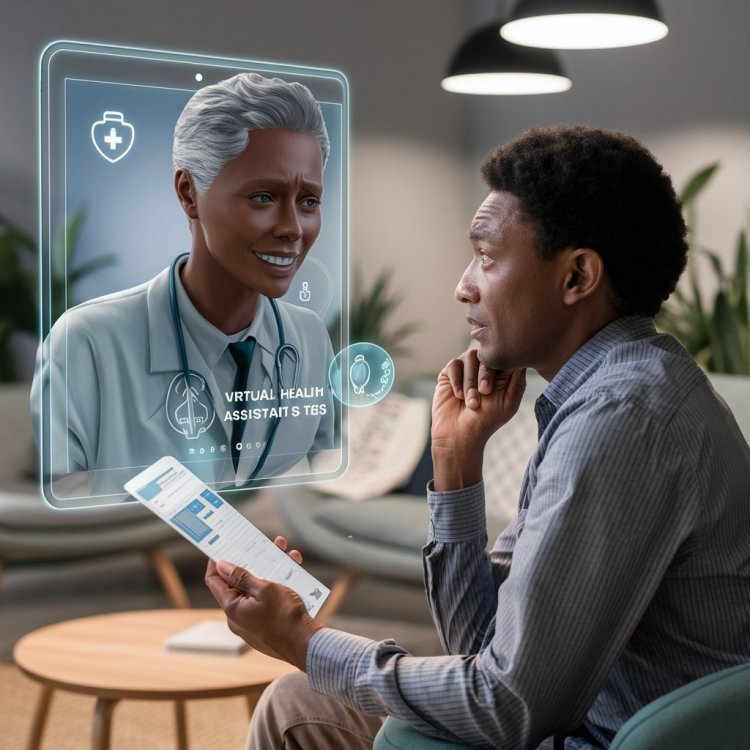The Future of AI in Healthcare: Transforming Patient Care and Diagnosis
Explore the transformative impact of Artificial Intelligence (AI) in healthcare, from enhancing diagnostic accuracy to improving patient care and operational efficiency.

Artificial Intelligence (AI) is rapidly reshaping various industries, with healthcare emerging as a key beneficiary. As technological advancements continue to revolutionize medical practices, AI's role in enhancing patient care and diagnostic accuracy is becoming increasingly significant. This article explores the transformative potential of AI in healthcare, its current applications, benefits, challenges, and the future outlook.
Current Landscape of AI in Healthcare
AI encompasses a range of technologies that enable machines to perform tasks typically requiring human intelligence, such as learning, reasoning, and problem-solving. In healthcare, AI is leveraged to analyze complex medical data, improve treatment outcomes, and streamline administrative processes. From diagnostic algorithms to predictive analytics, AI applications are diversifying across medical specialties, promising unprecedented advancements in patient care.
Applications of AI in Healthcare
1. Diagnostic Imaging
AI-powered diagnostic imaging tools, such as MRI and CT scan analysis software, enhance the accuracy and efficiency of radiologists. Machine learning algorithms can detect anomalies in medical images with greater precision, aiding in early detection of diseases like cancer and cardiovascular conditions.
2. Personalized Medicine
AI algorithms analyze patient data, including genetic information and medical history, to customize treatment plans. This approach ensures that treatments are tailored to individual patients, optimizing efficacy and minimizing adverse effects.
3. Virtual Health Assistants
Virtual health assistants powered by AI, like chatbots and voice-enabled tools, provide patients with instant medical information and guidance. These AI-driven interfaces improve patient engagement, offer remote healthcare services, and facilitate timely interventions.
4. Administrative Efficiency
AI streamlines administrative tasks, including appointment scheduling, billing, and medical record management. Automation of these processes reduces administrative burden on healthcare providers, allowing them to focus more on patient care.
Benefits of AI in Healthcare
1. Improved Diagnostic Accuracy
AI algorithms can analyze vast amounts of medical data quickly and accurately, leading to earlier and more precise diagnoses. This capability enhances treatment outcomes and patient survival rates.
2. Enhanced Efficiency
Automation of routine tasks frees up healthcare professionals' time, enabling them to allocate more resources to patient care. AI-driven systems also reduce healthcare costs by optimizing resource utilization and minimizing errors.
3. Predictive Analytics
AI enables predictive modeling based on patient data, identifying individuals at risk of developing specific conditions. Early identification allows for proactive interventions and preventive measures, improving population health outcomes.
4. Patient-Centric Care
Personalized medicine facilitated by AI ensures treatments align with patients' unique characteristics and preferences. This approach fosters a patient-centric healthcare model focused on individual well-being and satisfaction.
Challenges and Considerations
While AI presents promising opportunities in healthcare, several challenges must be addressed:
-
Data Privacy and Security: AI relies on extensive data sets, raising concerns about patient privacy and data security.
-
Regulatory Compliance: Healthcare AI systems must comply with stringent regulatory standards to ensure patient safety and ethical use of technology.
-
Integration with Existing Systems: Seamless integration of AI technologies into existing healthcare infrastructures requires careful planning and resource allocation.
-
Ethical Dilemmas: AI raises ethical concerns, such as bias in algorithms and accountability for decisions made by AI systems.
Future Outlook
The future of AI in healthcare holds tremendous potential for transformative advancements:
-
Advancements in AI Algorithms: Continued development of AI algorithms will enhance diagnostic capabilities, treatment efficacy, and predictive analytics.
-
Expansion of Telemedicine: AI-powered virtual health assistants will expand access to healthcare services, especially in remote and underserved areas.
-
Precision Medicine Revolution: AI-driven personalized medicine will become more prevalent, improving outcomes for patients with complex medical conditions.
-
Collaborative Healthcare Ecosystem: Integration of AI will foster collaboration among healthcare professionals, researchers, and technology developers to innovate patient care delivery.
Conclusion
In conclusion, AI is poised to revolutionize healthcare by enhancing diagnostic accuracy, improving treatment outcomes, and optimizing operational efficiency. While challenges such as data privacy and regulatory compliance persist, ongoing advancements in AI technology promise a future where personalized, patient-centric healthcare is the norm. As healthcare organizations and policymakers navigate the complexities of integrating AI into medical practices, the transformative impact of AI on patient care remains undeniable, heralding a new era of innovation and improved health outcomes globally.
What's Your Reaction?




















